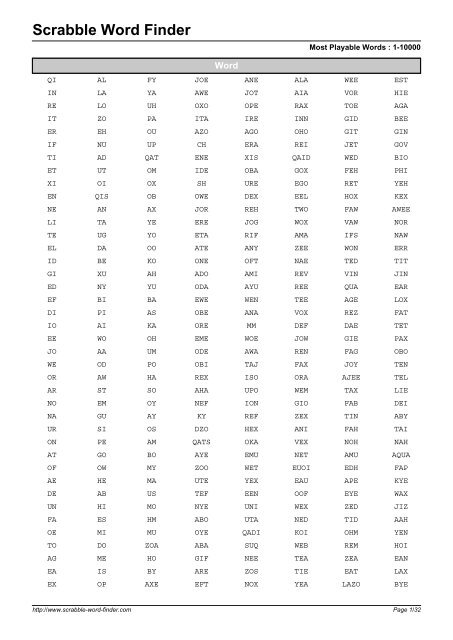


Many of these are borrowings from other languages, which explains why they do not follow the rule that English nouns, verbs, and adjectives should have at least three letters. As well as these, you are allowed to use some informal shortened forms of words (such as ‘ad’, ‘op’, and ‘mo’) and exclamations (such as ‘hm’, ‘oi’, and ‘yo’) that you will probably be familiar with but might think would be inadmissible.Īnd beyond these, there are over fifty two-letter combinations that you would probably never imagine were words. So the two-letter words that are used in everyday English tend to be ‘function words’ that do not name or describe things, but which exist to provide grammatical structure: words such as ‘to’, ‘in’, ‘so’, and ‘as’.īut these everyday words make up less than half of the two-letter words that are allowable in tournament Scrabble play. This explains why nouns such as ‘inn’ and ‘bee’ and verbs such as ‘buy’ have one letter more than might be thought strictly necessary.

In fact, there is a rather obscure principle of English spelling that states that nouns, verbs, and adjectives should contain at least three letters. So keen Scrabble players will make an effort to learn all 124 of the two-letter words in the official Scrabble word list, regardless of whether they would ever use them in a normal conversation. They allow them to form several words in a single turn and thus greatly increase their score. These words may be seldom encountered outside the popular board game, but two-letter words are gold dust to Scrabble players. Any time you play Scrabble against a serious competitive player you can expect them to offer up words such as xu, and zo with a surprising degree of confidence.


 0 kommentar(er)
0 kommentar(er)
